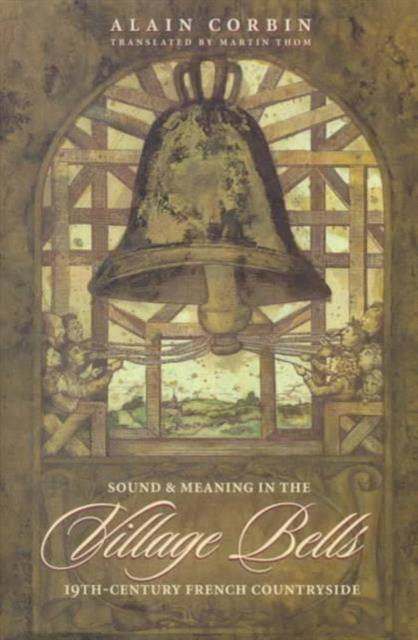
- Retrait gratuit dans votre magasin Club
- 7.000.000 titres dans notre catalogue
- Payer en toute sécurité
- Toujours un magasin près de chez vous
- Retrait gratuit dans votre magasin Club
- 7.000.0000 titres dans notre catalogue
- Payer en toute sécurité
- Toujours un magasin près de chez vous
Description
In the French canton of Brienne in November 1799, local authorities were scandalized when a crowd of girls broke through the doors of the church and rang the bells in order to mark the festival of St. Catherine. Religious use of the bells was forbidden by law, but the villagers boldly insisted on their right to celebrate with peals the feast of a beloved saint. So begins Village Bells, Alain Corbin's exploration of the "auditory landscape" of nineteenth-century France, a story of lost sensory experiences and forgotten passions. In the nineteenth century, these instruments were symbols of their towns and objects of both ecclesiastic and civic pride. Bell-ringing served practical purposes of communication, marking both religious and secular time, as well as calling citizens to pray, assemble, take arms, or beware of danger. As Corbin shows, the bells also reflected the social, political, and religious struggles of the time. To control the bells was to control the symbolic order, rhythm, and loyalties of French village and country life.
Using church archives and local documents, Corbin forges a unique history of the role of bells from the aftermath of the Revolution to the dawn of the twentieth century. He charts how the First Republic (1792-1804) moved toward a more secular society, turning many bells into coins and cannonballs and seizing others as property of the state. A gradual return to the religious use of bells occurred in the nineteenth century, even as their new secular roles were maintained. Corbin describes the battles over the marking of religious versus secular time, as calls to prayer, the celebration of religious feasts, and the marking of rites of passage--baptism, marriage, and death--competed with tolls indicating the passing hours or marking assemblies, elections, or republican holidays. Thoroughly documented and recounted with intriguing narratives, Village Bells provides an original approach to nineteenth-century French cultural, social, and political history. As Corbin notes, the bells are no longer essential to our lives--their qualitative, sacred time and space replaced by the quantitative, secular measures of the clock--but by understanding their lost symbolic and practical importance we open a window onto the age in which they rang.Spécifications
Parties prenantes
- Auteur(s) :
- Traducteur(s):
- Editeur:
Contenu
- Nombre de pages :
- 416
- Langue:
- Anglais
- Collection :
Caractéristiques
- EAN:
- 9780231104500
- Date de parution :
- 06-10-98
- Format:
- Livre relié
- Format numérique:
- Genaaid
- Dimensions :
- 160 mm x 236 mm
- Poids :
- 848 g

Les avis
Nous publions uniquement les avis qui respectent les conditions requises. Consultez nos conditions pour les avis.






